10 corporate dick moves in gaming history
These were not the games industry's finest hour. Or finest 10 hours.
For the most part, games companies want to entertain you and make a little money doing it. Or a lot of money. And that can work out well. Now and again though, things go terribly wrong. Loot boxes go too far. Launches are rushed and completely botched—while employees are overworked during 'crunch.' Corporate interests triumph over smart design. Something that must've seemed like a good idea inside the company turns out to really, really not be, and lands with a flatulent pffffffttt.
It isn't hard to find examples, but here are 10 corporate calls that we can look back on as especially greedy, crappy, or just plain boneheaded.
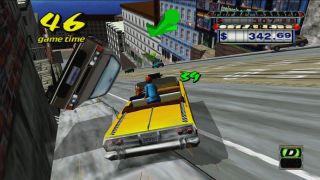
1. Great moments in software patents
Software patents are controversial in and of themselves, simply because while most agree that creators deserve rights over their ideas, there's often only one way to do things in software and the speed at which things move mean that a patent is more likely to hobble innovation than promote it—which is after all the intended point of the system in the first place. For example, have you ever wondered why game installers don't give you a mini-game to play instead of just a boring progress bar? It's because Namco snagged that in the 80s, preventing anyone else from doing it until late 2015.
Other patents include sanity bars and the D-Pad (Nintendo), peripherals that unlock content (Midway), in-game directions (Sega) and the Bioware dialogue wheel (Bioware, obviously). That's right: Sega patented a big arrow that points you towards your destination.

2. Digital distribution before Steam
Cast your mind back to the early 2000s, when digital distribution was in its infancy—and stank. The way most services worked was that you spent as much or more money on a digital copy of a game as the physical version, which was then locked by DRM technology onto one computer (occasionally more, but one was fairly standard) and you were only allowed to redownload it for a limited period of a year or so. Despite building a catalogue being arguably one of the biggest draws of digital distribution, to access your files after that meant coughing up another $5-$10 for an 'extended download service.'
Luckily, for all its problems, Steam came along and established the rules that we know today—re-download as much as you want, play on multiple machines, and typically enjoy much lower prices at least shortly after release. No wonder it quickly became PC owners' default destination, with everyone else playing catch-up.
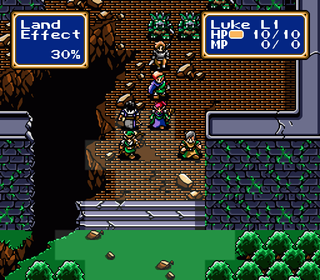
3. YouTube takedown sprees
Copyright and YouTube are uncomfortable bedfellows. To some, gameplay videos are a vital marketing tool, while others chafe at the sight of people getting rich off 'their' content. Nintendo is particularly quick on the report button, pushing a heavily controlled 'Nintendo Creators Program' as a profit-share scheme and going after other videos with its content. Sega too has had its moments, most notably when its marketing prep for a Shining Force game on PSP was to launch a takedown blitz on anything even mentioning the original game, then apologising only by saying that it had no plans to take down any more videos of that specific game. More recently, Atlus went after videos and streams of its PS4 RPG Persona 5, finally conceding to allow them, but only up to a certain point in the story.
The biggest gaming news, reviews and hardware deals
Keep up to date with the most important stories and the best deals, as picked by the PC Gamer team.
Many of these videos do exist in something of a copyright grey area—how transformative something like a commentary is, for instance—along with questions of whether something like a full playthrough by a popular YouTuber helps or hinders a game's sales. It's not unfair for companies to be concerned about such things, whatever the truth. But even with YouTube typically willing to effectively bend over for anyone with a claim, companies should be wary of tarring all videos with the same brush or being too strict about IP.
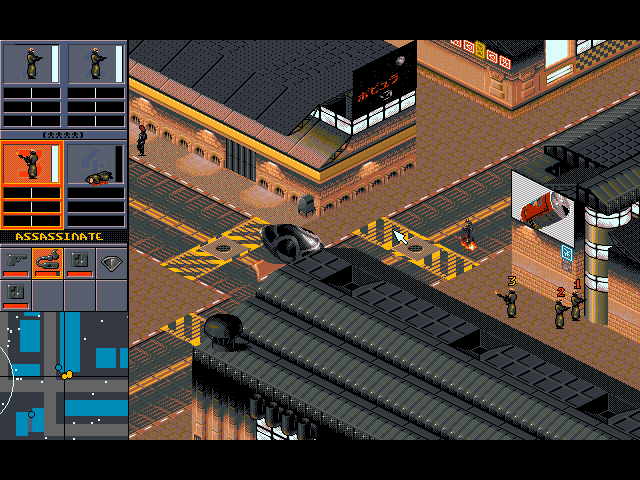
4. Games without endings
Your eyes burn. Your mouse-hand is locked in the shape of a claw. It's 4 am and you have to be up in three hours for work/school/whatever. You've beaten the game and are ready for your big reward. And then… then…
Was that it? Really?
Endings tend to be disappointing, not least because they're the part of the game that statistically the fewest people are going to see. If the money's there to make something huge and splashy and awesome, the intro always—always—takes priority. But some companies really do take the piss. Along with the scourge of 'To Be Continued' endings, like Halo 2 and Half-Life: Episode 2, we've seen games that expected us to buy DLC to see the proper ending (Prince of Persia 2008) or salvage a mistake (Fallout 3), games released before being finished (Metal Gear Solid V: The Phantom Pain) and of course, endings that just plain suck [Ed. note: looking at you, F.E.A.R. 2].
Of course, this is nothing new. Personal disappointments from the olden days include Syndicate, whose 'ending' was nothing but the usual end of level screen, Magic Carpet, which wasn't properly tested to see if it could be finished, blocking players from the terrible ten seconds of outro, and Eye of the Beholder, where the developers had created an ending, but the publisher refused to shell out on the extra floppy to hold it, leading to your reward for saving Waterdeep just being a flashing DOS prompt. Boo! Rubbish!

5. Project 10 Dollar
While game trading has never been as big a PC 'thing' as consoles, mostly due to the suspicion that everyone's taken a sneaky copy before visiting the store, the idea that you should be able to resell your property is pretty strongly enshrined in law. Not that companies haven't tried to intervene. Enter EA's Project 10 Dollar, designed to artificially deflate the worth of your goods by only giving the original purchaser access to the full game and any subsequent second-hand owner having to cough up ten dollars for the same. Examples of this content included Kingdom of Amalur's "House of Valor" DLC content pack, and the Mass Effect 3 Online Pass, which of course was tied to the main game's Galaxy At War system and part of unlocking the 'good' ending. Insert jokes about Mass Effect 3 not having a good ending here. We'll wait.
The weirdest of the Project 10 Dollar tests though has to be The Saboteur. This World War 2 sneaky-guy simulator features a cabaret as your home base, with the option for topless ladies only available to original players. Everyone else was asked to pay, or the bras stayed on. With creepy offers like that, and pushback from retailers, it's no surprise that Project 10 Dollar soon faded away, though DLC and season passes have stuck around.
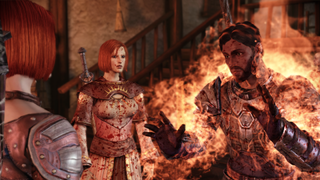
6. Integrated DLC vendors
Dragon Age: Origins was fantastic, and in fairness to BioWare, this is arguably the least dickish thing on the list. Playing the game, you soon unlock the ability to make camp, and when you do, you gain access to merchants. The catch is that when you talk to them and agree to lend your sword to their worthy cause, they reveal that they're actually selling DLC and saving that particular day is going to cost you real world money. Cue fury. And this comic.
Now, conceptually this one isn't too terrible, in that it makes the DLC easily accessible and it doesn't tear you too badly from the world. You can certainly see how it might have felt like a good idea internally. However, there are ways and means of presenting a bill, and this one ended up being about the most jarring. No wonder that BioWare would subsequently experiment with game wrappers like the Cerberus Network for Mass Effect 2 rather than being quite so overtly grabby. Nobody wants to be interrupted just to spend money.
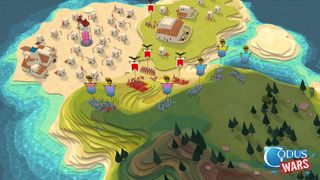
7. Curiosity kills godhood
For years, Peter Molyneux enjoyed a rare position—the PT Barnum of game designers. It didn't matter that the likes of Black and White and Dungeon Keeper never lived up to the wild claims, because the wild ride was part of the fun. Until Curiosity, which killed no cats, just Molyneux's reputation.
The gimmick was a big cube, which players around the world joined forces to break open… ironically like the Barnum musical song… one brick at a time. The game was free, but offered paid-for access to better digging tools. The reason to do so was the promise that "what is inside the cube is life-changingly amazing by any definition." This turned out to be the deeply underwhelming chance to be 'God of Gods' in Molyneux's wet-fart of a strategy game Project Godus, and a percentage of the profits that never actually appeared. The winner was dubbed 'The God Peter Molyneux Forgot' by Eurogamer.
Since then, both Godus and its spin-off Godus Wars have been abandoned, eventually taken off Steam. Godus feels as dead as Molyneux's reputation, with nobody still asking what comes next.

8. EA kills everything
Corporate takeovers are inevitable, but few companies have developed a reputation for acquiring and devouring them like EA. Populous creator Bullfrog, Command and Conquer creator Westwood, Ultima and Wing Commander creators Origin, SimCity builders Maxis, Peggle masterworks PopCap… the list goes on. In every case, the result was the same. EA would write a cheque, the founders would make a noise that sounded like 'whoo-hoo!', and then all the promise of working with a big secure publisher would disappear in a pop.
If classics returned at all, it was typically in bad cash-ins like Wing Commander Arena or the godawful Dungeon Keeper mobile edition. Even former EA CEO John Riccitello admitted it. "Bullfrog, Origin, Westwood—all no longer exist today because something broke ... and I'll simply state that EA blew it, and to a certain degree, since I was involved, I blew it." Cue much nodding.
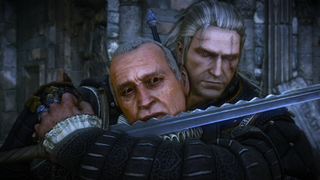
9. Piracy shakedowns
Most would agree that piracy is a bad thing, but there are ways and means of fighting it. CD Projekt Red in particular suffered a major blot on its copybook over The Witcher and The Witcher 2 when it was discovered that it had been sending shakedown letters to believed pirates, demanding they pay up to a thousand Euros or face legal consequences. The problems here should be obvious—that facing such a threatening letter, even many innocent people would pay up to avoid a legal battle, and that demanding such a punitive amount of money makes a company judge, jury and executioner. In addition, with the only tool for tracking pirates being incredibly unreliable IP lookups, it didn't take long for reports of people who had never even heard of The Witcher to start claiming they received these frightening legal threats through the post.
CD Projekt isn't the only company to have sent these shakedown letters via its lawyers, with others fingered by torrentfreak.com back in 2012 including Koch, Codemasters, EIDOS, Ubisoft and Kalypso, though it was one of the more ironic, after having made a big deal out of actively avoiding standard industry practices like DRM. Fortunately, it quickly backed down and announced an end to the practice. "Being part of a community is a give-and-take process. We only succeed because you have faith in us, and we have worked hard over the years to build up that trust. We were sorry to see that many gamers felt that our actions didn't respect the faith that they have put into CD Projekt RED."

10. Name wars
Names are important. It's not just good form to try and avoid confusion on the shelves, it's the point of trademark law. Admittedly, some companies will push that to breaking point with neutral words like 'Tycoon' or 'Simulator' depending on what's been big recently, just as the porn industry seems to have decided that coming up with clever names like 'The Bare Witch Project' is a waste of time that could be spent just adding "An XXX Parody" to any old movie.
But then you get companies who decide they own specific words. Bethesda for instance bullying the then-tiny Mojang over its CCG Scrolls, claiming that players would confuse it with The Elder Scrolls. Casual game company King set its lawyers on both The Banner Saga creators and the maker of a casual game called CandySwipe, claiming that the success of its own game Candy Crush Saga meant it owned both 'Candy' and 'Saga', while Rebellion decided that Stardock shouldn't be allowed to use its name as a Sins of a Solar Empire DLC.
By far the most prevalent though is one Tim Langdell, a developer who shot to the world's attention by ordering the takedown of a game called Edge from the iTunes Store. Langdell believed himself to be the sole owner of that word, and wasn't afraid to send nastygrams to anyone who disagreed, which is why Soul Edge was renamed Soul Calibre in the UK. The full story is too long to go into—check here for the whole sordid story—though the highlight is probably his attempt to grant leniency to the makers of Edge by having them pay to rename their game 'Edge: An Homage To Bobby Bearing.' Suffice it to say that Langdell's trademarks are no longer an issue, largely due to going after EA over Mirror's Edge, and EA replying 'haha, no.'
Most Popular


